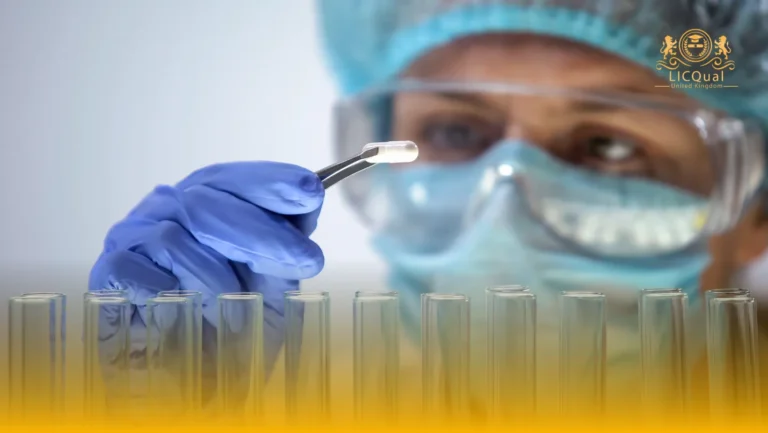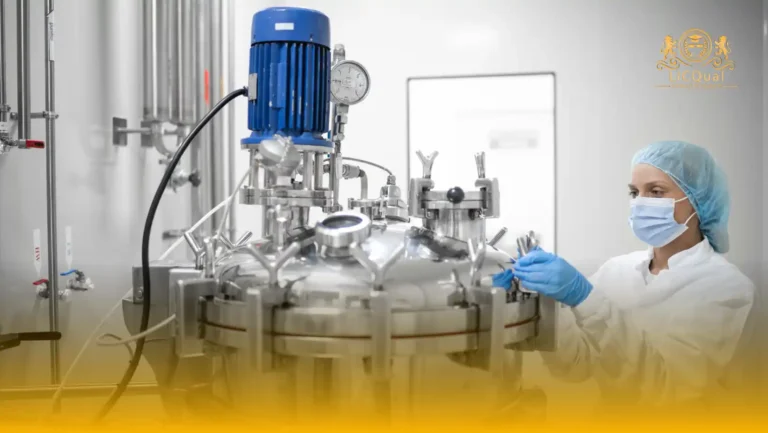The Level 7 Postgraduate Diploma in Pharmaceutical Regulatory Affairs (PgD Regulatory Affairs) is a prestigious advanced qualification designed for professionals seeking to elevate their expertise in the rapidly evolving field of pharmaceutical regulation. This programme is not intended for fresh entrants but is specifically tailored for experienced professionals aiming to enhance their career prospects, broaden their knowledge base, and actively contribute to their Continuing Professional Development (CPD).
This postgraduate diploma equips learners with a comprehensive understanding of regulatory frameworks governing the pharmaceutical industry, including national and international standards, compliance strategies, and quality assurance processes. Learners will gain the skills necessary to interpret complex regulations, implement best practices in regulatory submissions, and ensure that pharmaceutical products meet the highest safety, efficacy, and quality standards.
Delivered in alignment with international standards, the programme emphasises practical application alongside theoretical knowledge. Learners will engage in critical analysis, research projects, and real-world case studies, enabling them to make informed decisions that positively impact organisational performance and regulatory compliance.
Centres offering this qualification are required to maintain the highest standards of delivery. They must employ competent and qualified staff with expertise in pharmaceutical regulatory affairs and provide access to all necessary materials, resources, and facilities. This ensures a rich, high-quality learning experience that supports learner success and professional growth.
By completing this Level 7 Postgraduate Diploma, learners position themselves as leaders in pharmaceutical regulatory affairs, ready to navigate complex regulatory environments, influence strategic decision-making, and drive excellence within their organisations.
Course Overview
Qualification Title
LICQual Level 7 Postgraduate Diploma in Pharmaceutical Regulatory Affairs (PgD Regulatory Affairs)
Total Units
6
Total Credits
120
GLH
600
Qualification #
LICQ2201226
Qualification Specification
To enroll in the Level 7 Postgraduate Diploma in Pharmaceutical Regulatory Affairs (PgD Regulatory Affairs), applicants must meet the following criteria:
|
Qualification# |
Unit Title |
Credits |
GLH |
|---|---|---|---|
|
LICQ2201226-1 |
Regulatory Frameworks in Pharmaceuticals |
20 |
100 |
|
LICQ2201226-2 |
Clinical Trials and Regulatory Compliance |
20 |
100 |
|
LICQ2201226-3 |
Quality Assurance and Risk Management |
20 |
100 |
|
LICQ2201226-4 |
Regulatory Submission and Documentation |
20 |
100 |
|
LICQ2201226-5 |
Advanced Pharmacovigilance and Safety Reporting |
20 |
100 |
|
LICQ2201226-6 |
Regulatory Affairs Leadership Project |
20 |
100 |
By the end of this course, learners will be able to:
Unit 1: Regulatory Frameworks in Pharmaceuticals
learners will be able to:
- Critically evaluate national and international regulatory frameworks governing pharmaceutical products.
- Analyse the impact of legislation and regulatory policies on drug development, approval, and distribution.
- Apply regulatory knowledge to ensure compliance and mitigate legal and operational risks.
- Develop strategic approaches to align organisational practices with regulatory requirements.
Unit 2: Clinical Trials and Regulatory Compliance
learners will be able to:
- Critically assess regulatory requirements for the design, conduct, and monitoring of clinical trials.
- Evaluate ethical considerations and Good Clinical Practice (GCP) guidelines in clinical research.
- Apply compliance strategies to manage trial documentation, safety reporting, and regulatory submissions.
- Analyse challenges in clinical research and propose solutions to ensure regulatory adherence.
Unit 3: Quality Assurance and Risk Management
learners will be able to:
- Critically evaluate quality management systems within pharmaceutical operations.
- Identify and assess risks across manufacturing, distribution, and regulatory compliance processes.
- Develop and implement effective risk mitigation and quality assurance strategies.
- Apply evidence-based approaches to enhance product safety, efficacy, and regulatory compliance.
Unit 4: Regulatory Submission and Documentation
learners will be able to:
- Analyse regulatory submission requirements and dossier structures, including the Common Technical Document (CTD).
- Develop accurate, high-quality regulatory documentation for submission to approval authorities.
- Critically evaluate submission strategies to ensure timely regulatory approvals.
- Apply project management principles to oversee the preparation and review of regulatory submissions.
Unit 5: Advanced Pharmacovigilance and Safety Reporting
learners will be able to:
- Critically assess pharmacovigilance requirements and international safety reporting standards.
- Monitor and evaluate adverse drug reactions, signal detection, and risk communication.
- Develop strategies for proactive pharmacovigilance and regulatory compliance.
- Apply analytical skills to improve patient safety and organisational regulatory practices.
Unit 6: Regulatory Affairs Leadership Project
learners will be able to:
- Design and implement a regulatory affairs project addressing a practical challenge in the pharmaceutical sector.
- Demonstrate advanced problem-solving, leadership, and project management skills.
- Critically evaluate project outcomes using appropriate performance indicators.
- Reflect on regulatory leadership practice and propose evidence-based recommendations for organisational improvement.
The LICQual Level 7 Postgraduate Diploma in Pharmaceutical Regulatory Affairs (PgD Regulatory Affairs) is designed for professionals who want to master compliance, drug approval processes, and international regulatory frameworks. This postgraduate diploma in regulatory affairs online is ideal for pharmacists, healthcare managers, policy makers, and industry specialists seeking career growth, specialization, and global accreditation. Whether you are working in hospitals, pharmaceutical companies, government agencies, or academic institutions, this program equips you with the skills to lead effectively in regulatory affairs and healthcare compliance.
1. Practicing Pharmacists Seeking Regulatory Expertise
- Pharmacists aiming to move into senior regulatory affairs roles
- Professionals looking for international recognition through PgD Regulatory Affairs qualification
- Those wanting to strengthen knowledge in compliance and drug approval processes
- Pharmacists seeking eligibility for advanced postgraduate pathways
- Individuals aiming to enhance patient‑centered care through regulatory knowledge
2. Pharmaceutical Industry Professionals
- Experts working in drug manufacturing, distribution, and quality assurance
- Professionals seeking Level 7 Pharmaceutical Regulatory Affairs diploma UK accredited credentials
- Those aiming to improve knowledge in licensing and global compliance standards
- Industry specialists preparing for leadership positions in pharmaceutical companies
- Individuals wanting to align product strategies with international healthcare regulations
3. Hospital and Clinical Pharmacy Managers
- Hospital pharmacists managing compliance and regulatory documentation
- Clinical pharmacy leaders working with multidisciplinary healthcare teams
- Professionals seeking postgraduate diploma in regulatory affairs online flexibility
- Those aiming to improve patient safety through regulatory compliance
- Managers preparing for strategic leadership roles in healthcare institutions
4. Healthcare Policy Makers and Administrators
- Government officials involved in healthcare planning and regulation
- Policy makers seeking PgD Regulatory Affairs international qualification for credibility
- Administrators aiming to design cost‑effective and compliant healthcare systems
- Professionals responsible for evaluating drug pricing and reimbursement policies
- Leaders preparing for strategic roles in healthcare management
5. Academic and Research Professionals
- Lecturers and trainers in pharmacy, law, and healthcare education
- Researchers seeking accredited postgraduate diploma in pharmaceutical regulatory affairs for academic credibility
- Those aiming to publish studies on compliance and healthcare regulation
- Educators wanting to align with global accreditation standards
- Academic staff preparing students for advanced regulatory affairs practice
6. International Healthcare Professionals
- Pharmacists outside the UK seeking globally recognized qualifications
- Professionals aiming for international career mobility in regulatory affairs
- Those wanting affordable postgraduate diploma in pharmaceutical regulatory affairs options
- Practitioners seeking flexible online learning opportunities
- Healthcare workers preparing for advanced licensing or accreditation
7. Early‑Career Graduates and Aspiring Leaders
- Recent pharmacy or healthcare graduates seeking specialization in regulatory affairs
- Individuals wanting to fast‑track career success with PgD Regulatory Affairs
- Those aiming to build strong foundations in compliance and healthcare law
- Graduates preparing for leadership and advanced postgraduate studies
- Professionals seeking mentorship and structured career pathways
To deliver the Level 7 Postgraduate Diploma in Pharmaceutical Regulatory Affairs effectively, centres must meet the following requirements:
- Accreditation and Recognition: Centres must be accredited by recognised national or international educational authorities and approved to deliver postgraduate-level programmes in pharmaceutical or healthcare-related fields.
- Qualified Academic Staff: Centres should employ competent and experienced teaching staff with expertise in pharmaceutical regulatory affairs, quality assurance, and healthcare leadership at Level 7 or equivalent.
- Learning Resources: Centres must provide access to comprehensive learning materials, including textbooks, regulatory guidelines, research journals, case studies, and digital learning platforms.
- ICT and Online Learning Infrastructure: Reliable internet access, computers or laptops, and secure online platforms are required to facilitate interactive learning, research, and assessment activities.
- Practical and Research Facilities: Availability of facilities for project work, simulations, and research activities relevant to pharmaceutical regulatory affairs is essential.
- Assessment and Quality Assurance Systems: Centres should maintain robust assessment processes, including formative and summative evaluations, and implement quality assurance measures aligned with international standards.
- Learner Support Services: Centres must provide academic guidance, career advice, and access to professional networks to support learners’ progression and success.
These requirements ensure that centres deliver a high-quality, internationally recognised programme, equipping learners with the skills, knowledge, and practical experience needed to excel in pharmaceutical regulatory affairs and leadership roles.
Assessment and Verification
All units within this qualification are subject to internal assessment by the approved centre and external verification by LICQual. The qualification follows a criterion-referenced assessment approach, ensuring that learners meet all specified learning outcomes.
To achieve a ‘Pass’ in any unit, learners must provide valid, sufficient, and authentic evidence demonstrating their attainment of all learning outcomes and compliance with the prescribed assessment criteria. The Assessor is responsible for evaluating the evidence and determining whether the learner has successfully met the required standards.
Assessors must maintain a clear and comprehensive audit trail, documenting the basis for their assessment decisions to ensure transparency, consistency, and compliance with quality assurance requirements.







